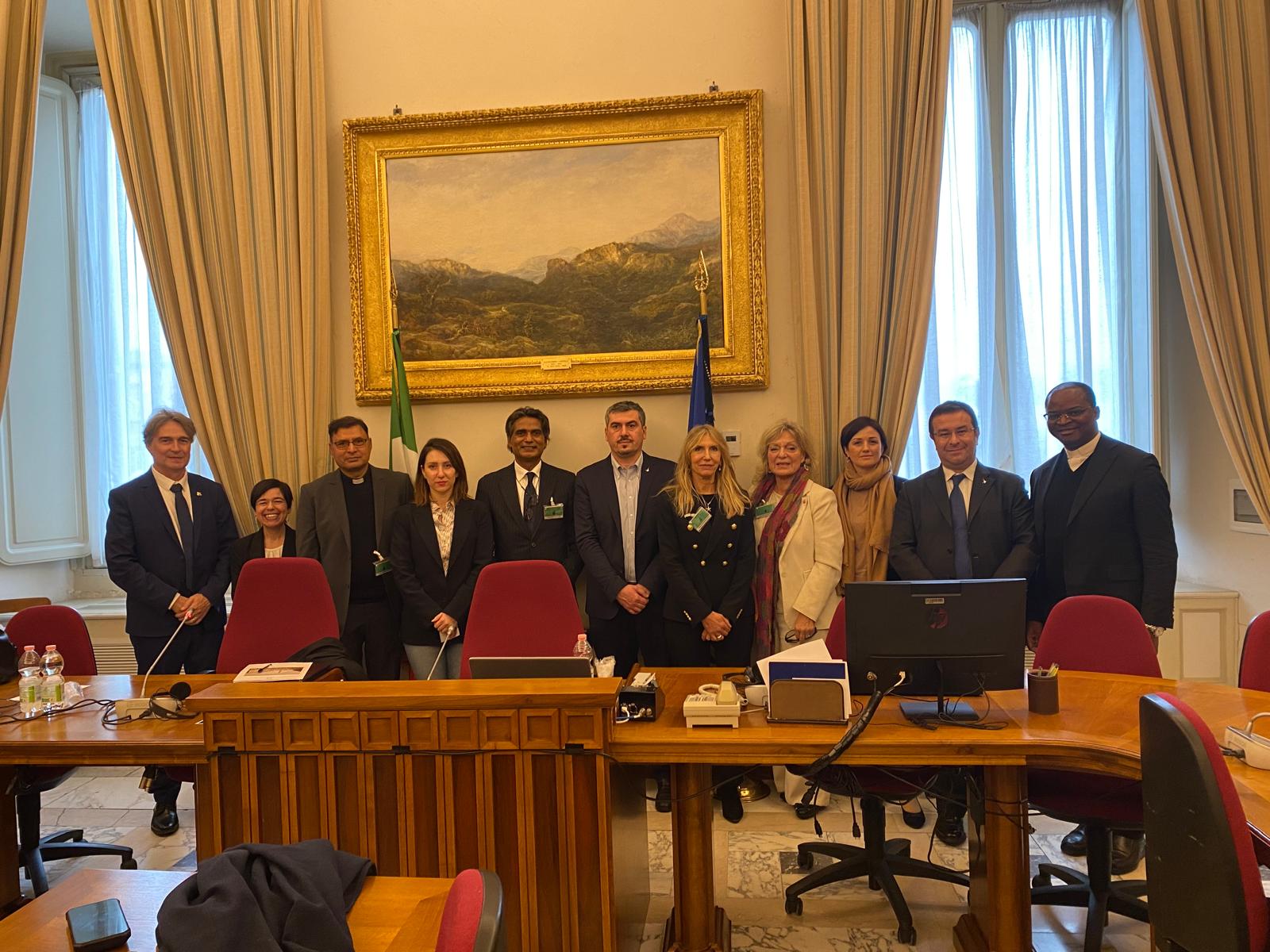News Desk
Rome, December 3, 2024:
The President of the Italian Consultation for Religious Freedom, addressing the Permanent Committee on the Protection of Religious Freedom in the International Sphere, delivered a compelling appeal for concrete actions to combat the global erosion of religious freedom. Representing an organization that unites civil society associations like Aid to the Church in Need, the Association of Pakistani Christians in Italy, and the Community of Sant’Egidio, the President emphasized the Consultation’s commitment to raising awareness and collaborating with institutions to protect religious communities facing persecution, particularly Christians.
The Vice President of Foreign Affairs Commission of the Italian Parliment MP Paolo Formentini presided over the audition. 11 members of the Parliamentary Committee on religious freedom attended and participated actively in the meeting. International Foundation Oasis, Pro Terra Santa was among the members of the roundtable.
The Member of the Italian Parliament Emmanuele Pozzolo convocated the parliamentary audition along with the Prof Shahid Mobeen, who is the President of the Italian Roundtable of religious freedom in the world.
Quoting Pope John Paul II, who described the defense of religious freedom as “the litmus test for verifying the respect of all other human rights,” the President highlighted how violations of this fundamental right often signal broader infringements on human liberties, threatening social cohesion and global peace. Citing Aid to the Church in Need’s 2023 Report on Religious Freedom, he revealed that 62% of the global population lives in countries where religious freedom is severely restricted, with violations reported in 61 out of 196 countries. Christian communities remain the most persecuted group, with 325 million individuals facing persecution worldwide.
The President underscored the alarming situation in sub-Saharan Africa, where jihadist groups target Christians in countries such as Burkina Faso and the Democratic Republic of Congo. In Asia, religious extremism and discriminatory laws, such as Pakistan’s anti-blasphemy laws and India’s anti-conversion laws, exacerbate persecution, while authoritarian regimes in North Korea and elsewhere continue to repress religious minorities. Latin America has also seen a tightening of restrictions, with Nicaragua’s repression of the Catholic Church being particularly notable. The Middle East remains a region of deep concern, with ancient Christian communities at risk of disappearing amid conflict and social instability.
Amid this grim backdrop, the President proposed four key actions for Italy and its partners to address the crisis. First, he urged Italy to join the International Alliance for Freedom of Religion or Belief, a coalition of 42 countries committed to protecting this right. Second, he recommended establishing a monitoring body to study and document violations of religious freedom, leveraging the expertise of organizations like Aid to the Church in Need. Third, he called for at least two annual missions to regions where religious freedom is under threat, aimed at gathering data and showing solidarity with affected populations. Lastly, he proposed creating scholarships for Christian students living in minority contexts, a measure that could promote education, reduce discrimination, and foster sustainable development in their home countries.
He also praised the Italian government’s recent appointment of Davide Dionisi as Special Envoy for the Promotion of Religious Freedom and Protection of Religious Minorities, describing it as a significant step in institutional efforts to safeguard this fundamental right. The speech concluded with a call for sustained international cooperation and practical measures to ensure that religious freedom, recognized as a cornerstone of human rights, is universally protected.


